12 start with H start with H
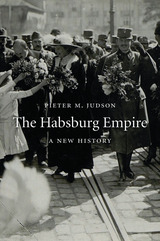
A EuropeNow Editor’s Pick
A Choice Outstanding Academic Title of the Year
“Pieter M. Judson’s book informs and stimulates. If his account of Habsburg achievements, especially in the 18th century, is rather starry-eyed, it is a welcome corrective to the black legend usually presented. Lucid, elegant, full of surprising and illuminating details, it can be warmly recommended to anyone with an interest in modern European history.”
—Tim Blanning, Wall Street Journal
“This is an engaging reappraisal of the empire whose legacy, a century after its collapse in 1918, still resonates across the nation-states that replaced it in central Europe. Judson rejects conventional depictions of the Habsburg empire as a hopelessly dysfunctional assemblage of squabbling nationalities and stresses its achievements in law, administration, science and the arts.”
—Tony Barber, Financial Times
“Spectacularly revisionist… Judson argues that…the empire was a force for progress and modernity… This is a bold and refreshing book… Judson does much to destroy the picture of an ossified regime and state.”
—A. W. Purdue, Times Higher Education
“Judson’s reflections on nations, states and institutions are of broader interest, not least in the current debate on the future of the European Union after Brexit.”
—Annabelle Chapman, Prospect
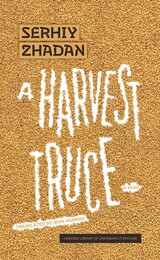
Brothers Anton and Tolik reunite at their family home to bury their recently deceased mother. An otherwise natural ritual unfolds under extraordinary circumstances: their house is on the front line of a war ignited by Russian-backed separatists in eastern Ukraine. Isolated without power or running water, the brothers’ best hope for success and survival lies in the declared cease fire—the harvest truce. But such hopes are swiftly dashed, as it becomes apparent that the conflagration of war will not abate.
With echoes of Waiting for Godot, Serhiy Zhadan’s A Harvest Truce stages a tragicomedy in which the commonplace experiences of death, birth, and the cycles of life marked by the practices of growing and harvesting food are rendered futile and farcical in the wake of the indifferent juggernaut of war.
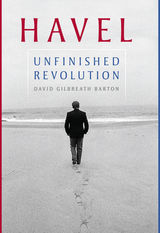
This is the story of a man who tried to resurrect the spirit of democratic life. He was born into a time of chaos and absurdity, and he took it as his fate to carry a candle into the night. This is his story and the story of many others, the writers, artists, actors, and philosophers who took it upon themselves to remember a tradition that had failed so miserably it had almost been forgotten.
Václav Havel (1936–2011), the famous Czech dissident, intellectual, and playwright, was there when a half million people came to Wenceslas Square to demand an end to Communism in 1989. Many came to hear him call for a free Czechoslovakia, for democratic elections, and a return to Europe. The demonstrators roared when he spoke. “Havel to the castle,” they chanted— meaning Havel for president. And a few weeks later, Havel became a most unusual president. He was sometimes misunderstood and not always popular, but by the time of his death in 2011, the world recognized Havel as one of the most prominent figures of the twentieth century.
Born into one of the most prominent and wealthy families in Prague, Havel was the constant subject of attention and an artistic eccentric in a family of businessmen. A young Havel and his family were cast by the Communist takeover as class enemies. Havel traveled a dark road that, ironically, provided the experiences he needed to reconnect not only to his own “ground of being” but to the traditions of civic society. This biography is the story of Havel’s inward journey in his underground years and thus the story of how Havel, the outsider, became the ultimate insider as president of the nation.
In this intimate and sweeping portrayal of Havel, David Barton reveals the eccentricities of the last president of Czechoslovakia, and the first president of the Czech Republic.
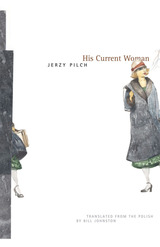
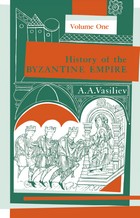
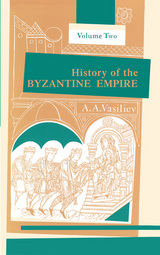
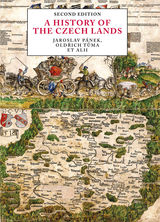
The second edition includes sixty new photographs and a new chapter detailing the transformation of this post-communist country into a member of the European Union. The only study in English of this scope and ambition, A History of the Czech Lands is essential for scholars of Slavic, Central, and East European studies and a must-read for those who trace their ancestry to these lands.
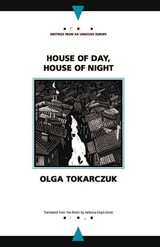
Winner of the Gunter Grass Prize
Nowa Ruda is a small town in Silesia, an area that has been a part of Poland, Germany, and the former Czechoslovakia in the past. When the narrator moves into the area, she and discovers everyone-and everything-has its own story. With the help of Marta, her enigmatic neighbor, the narrator accumulates these stories, tracing the history of Nowa Ruda from the founding of the town to the lives of its saints, from the caller who wins the radio quiz every day to the tale of the man who causes international tension when he dies on the border, one leg on the Polish side, the other on the Czech side. Each of the stories represents a brick and they interlock to reveal the immense monument that is the town. What emerges is the message that the history of any place--no matter how humble--is limitless, that by describing or digging at the roots of a life, a house, or a neighborhood, one can see all the connections, not only with one's self and one's dreams but also with all of the universe.
Richly imagined, weaving in anecdote with recipes and gossip, Tokarczuk's novel is an epic of a small place. Since its original publication in 1998 it has remained a bestseller in Poland. House of Day, House of Night is the English-language debut of one of Europe's best young writers.
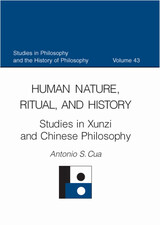

This exceptional bibliography, a pioneer work in its field, surveys Hungarian literature from its beginnings to 1965. A companion to the author's An Introductory Bibliography to the Study of Hungarian Literature, this volume contains over 4500 numbered entries which report on the first and later editions of the works of 162 authors. Mr. Tezla has included the major figures from each literary period and has based his selection of authors on the importance of their original writings to the development of this national literature. Significant authors who established substantial careers in Hungary and continued to write after their emigration are also represented in this comprehensive volume, as are a number of figures of secondary literary import.
Mr. Tezla begins his coverage of each author with a brief biographical account offering pertinent data on family background, education, and literary activities. The sketch provides as well observations on the writings of the author and his place in Hungarian literature and a record of the languages into which his works have been translated. Further material on the author is divided into annotated sections noting bibliographical, biographical, and critical studies.
As a means of helping the reader obtain titles through inter-library loan or through photographic processes, Mr. Tezla also includes location symbols for numbered items known to be available in selected libraries in the United States and Europe. Five appendixes, a glossary, and indexes provide additional bibliographic tools for both the beginning student and the advanced scholar researching Hungarian literature. The work is invaluable also as a buying guide for libraries seeking to develop a Hungarian collection.
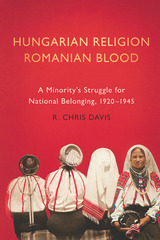
Davis's highly illuminating example is the case of the little-known Moldavian Csangos, a Hungarian- and Romanian-speaking community of Roman Catholics in eastern Romania. During World War II, some in the Romanian government wanted to expel them. The Hungarian government saw them as Hungarians and wanted to settle them on lands confiscated from other groups. Resisting deportation, the clergy of the Csangos enlisted Romania's leading racial anthropologist, collected blood samples, and rewrote a millennium of history to claim Romanian origins and national belonging—thus escaping the discrimination and violence that devastated so many of Europe's Jews, Roma, Slavs, and other minorities. In telling their story, Davis offers fresh insight to debates about ethnic allegiances, the roles of science and religion in shaping identity, and minority politics past and present.
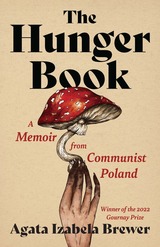
“A searing memoir about growing up behind the Iron Curtain, motherhood, addiction, and finding sustenance in the natural world.” —Kirkus
In The Hunger Book, Agata Izabela Brewer evokes her Polish childhood under Communism, where the warmth of her grandparents’ love and the scent of mushrooms drying in a tiny apartment are as potent as the deprivations and traumas of life with a terrifyingly unstable, alcoholic single mother. Brewer indelibly renders stories of foraging for food, homemade potato vodka (one of the Eastern Bloc’s more viable currencies), blood sausage, sparrows plucked and fried with linseed oil, and the respite of a country garden plot, all amid Stalinist-era apartment buildings, food shortages, martial law, and nuclear disaster in nearby Ukraine.
Brewer reflects on all of this from her immigrant’s vantage point, as she wryly tries to convince her children to enjoy the mushrooms she gathers from a roadside and grieves when they choose to go by Americanized versions of their Polish names. Hunting mushrooms, like her childhood, carried both reward and mortal peril. The Hunger Book, which includes recipes, is an unforgettable meditation on motherhood and addiction, resilience and love.
READERS
Browse our collection.
PUBLISHERS
See BiblioVault's publisher services.
STUDENT SERVICES
Files for college accessibility offices.
UChicago Accessibility Resources
home | accessibility | search | about | contact us
BiblioVault ® 2001 - 2024
The University of Chicago Press









